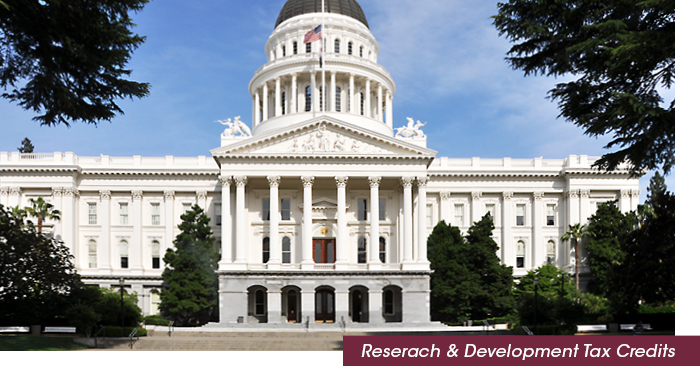Follow KBKG on Social Media
By Tetyana Guguchkina, Elise Rhee, & Michael Maroney | Research & Development Tax Credits
California is poised to overhaul its R&D Tax Credit with Senate Bill 711 (SB 711), which proposes replacing the state’s Alternative Incremental Research Credit (AIRC) with a new Alternative Simplified Credit (ASC) modeled after the federal version. If enacted, this change could significantly expand access to R&D incentives, especially for startups and businesses lacking long-term historical data.
KBKG Insight:
The ASC option introduced by SB 711 would remove key barriers that prevent smaller or newer companies from benefiting under California’s current R&D Credit regime. By aligning with the federal methodology, the bill simplifies compliance and may lead to increased R&D claims across industries. However, taxpayers using AIRC should prepare for its retroactive repeal to 2022 and reassess their credit strategy accordingly.
Background
Under current law, California offers two R&D credit methods: the 15% regular credit for companies with robust historical data and the AIRC for those with lower or inconsistent R&D spending. SB 711 would eliminate AIRC and replace it with an ASC that provides:
- A 3% credit on current year’s QREs exceeding 50% of the average QREs from the prior three years.
- A flat 1.3% credit for taxpayers with no QREs in the prior three years.
- A rule that once ASC is elected remains in place unless revoked with Franchise Tax Board consent.
The proposed ASC would apply to tax years beginning January 1, 2025, while the repeal of AIRC would retroactively affect returns from 2022 onward.
Legislative Outlook
SB 711 passed the State Senate unanimously and is now in the Assembly. If adopted by the September 12 deadline, it will take immediate effect. Although Governor Newsom vetoed a similar bill in 2024, the narrower scope of SB 711 and its federal conformity may improve its chances.
Conclusion
SB 711 would simplify R&D credit calculations, especially benefiting startups and small businesses. However, companies must weigh the benefits of ASC against the potentially higher Regular Credit and model the impact before making elections. To evaluate how SB 711 might affect personal R&D claims, contact a KBKG specialist today.
About the Authors
Tetyana Guguchkina | Principal – Research & Development Tax Credits
Tetyana Guguchkina is a Principal with KBKG working for the Research and Development (R&D) Tax Credit department. She advises clients on tax matters related to federal and state research and development tax incentives. Tetyana has more than 10 years of tax compliance experience in public accounting… Read More
Elise Rhee | Director – Research & Development Tax Credits
Elise Rhee is a Director with KBKG working for the Research and Development (R&D) Tax Credit department. She has 8 years of consulting experience providing R&D tax credit services to companies ranging from architectural & engineering, food & beverage, software development, cosmetics, manufacturing, automotive, and… Read More
Michael Maroney | Director – Research & Development Tax Credits
Michael Maroney is a Director with KBKG and advises clients on tax matters related to federal and state Research and Development (R&D) Tax Credits. He has advised numerous Fortune 1000 clients across a variety of industries and has successfully defended his client’s R&D claims before the IRS and state taxing authorities… Read More





